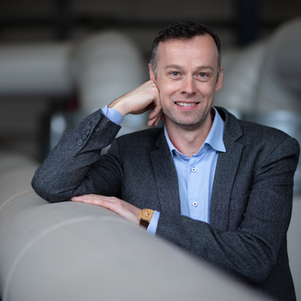Geothermal source on TU Delft campus a step closer
The sense of urgency of the energy transition increases every day. By 2030, CO₂ emissions must be reduced by 55% compared to 1990 and 1.5 million households must be gas-free by then. This demands specific action.
About fifteen years ago, a group of TU Delft students had the idea of drilling a geothermal well on the university campus. What first appeared to be a wild idea became a plan when it turned out that the campus was an ideal location for geothermal energy. In the meantime, the construction of this geothermal well has taken another important step forward, now that the Dutch government has allocated an SDE++ grant to the Geothermal Delft consortium, in which TU Delft, Aardyn, Shell Geothermal (Shell) and Energie Beheer Nederland (EBN) are united.
With this financial security, the Geothermal Delft project is entering a new phase: a unique project in which research and business come together, at a crucial moment in the energy transition. The planning is for the first geothermal well to be drilled by the end of 2022. From the end of 2023, the project can provide sustainable heat for the buildings on the university campus. From 2024, this can be extended to the Delft neighbourhoods of Voorhof and Buitenhof through a heat network for which the municipality of Delft and four housing corporations intend to develop plans.
For research leader Phil Vardon and his team, after years of measurements, research and making connections, a long-cherished dream is coming true. "With this source on campus, TU Delft will become one of the largest hotspots worldwide for research into geothermal energy." The scientific research will be carried out during the various phases of the project. For example, during the drilling phase rock samples will be collected so that scientists can take a peek into the subsurface of Delft. The two wells will also be equipped with a large number of sensors and measuring stations will be placed on the surface. Through the sensors, the researchers are able to collect data on how the wells interact with the various rock layers of the geothermal heat source. In the production phase, the scientists will use this data to better understand the potential of geothermal systems to improve the efficiency and lifetime of future projects.
Read more about the geothermal research of Phil Vardon and his team.
The full press release of the geothermal source is available on the Geothermal Delft website (in Dutch only).


![[Translate to English:] [Translate to English:]](https://filelist.tudelft.nl/CiTG/Onderzoek/Stories%20of%20Science/Geoscience%20%26%20Engineering/Een%20aardwarmtebron%20voor%20onderzoek%20op%20de%20campus/phil-on-mount-4.gif)